Iranian hackers target Trump’s FBI nominee - CNN
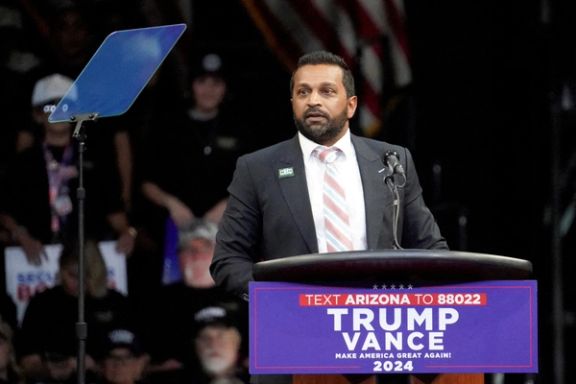
Kash Patel, chosen by US President-elect Donald Trump to lead the FBI, was recently notified by the bureau that he was a target of an Iranian hack, two sources familiar with the situation told CNN.

Kash Patel, chosen by US President-elect Donald Trump to lead the FBI, was recently notified by the bureau that he was a target of an Iranian hack, two sources familiar with the situation told CNN.
Hackers accessed at least some of Patel’s communications, according to one source.
“Kash Patel was a key part of the first Trump administration’s efforts against the terrorist Iranian regime and will implement President Trump’s policies to protect America from adversaries as the FBI Director,” Trump transition spokesman Alex Pfeiffer said in an statement.
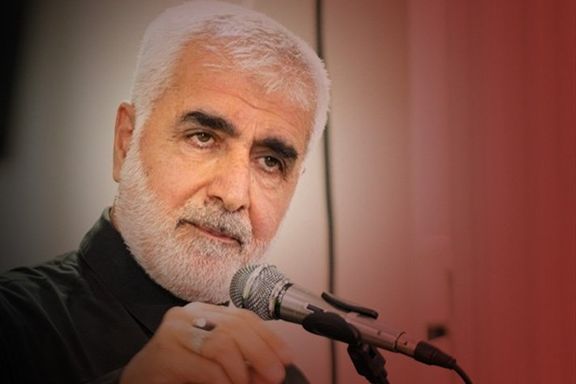
An Iranian commander who led the battle to retake Aleppo from Syria’s opposition forces in 2017 has returned, Iran’s state media said, as President Bashar al-Assad faces renewed threats from armed groups bent on toppling his government.
Javad Ghaffari, a senior figure in Iran’s Revolutionary Guard Corps (IRGC) was reported to have arrived in Damascus on Sunday, Iran's state-run Al-Alam news website reported, hours after Iran’s foreign minister said Iranian forces could be deployed to Syria if requested by Assad.
Ghaffari was sanctioned by the United States in September 2024 for his role in “targeting critics of the Iranian regime abroad” as head of the IRGC Intelligence Organization’s Special Operations Division.
Previously, Ghaffari spent a several years in Syria leading forces, including Hezbollah fighters and the Afghan Fatemiyoun militia in campaigns to reclaim key central and Eastern cities Palmyra, Deir ez-Zor, and Al-Bukamal from opposition groups.
He was dubbed Butcher of Aleppo by his foes following the bloody battle over Syria’s second largest city, where thousands were killed and injured.
Despite his military successes, Ghaffari had to leave Syria in 2021, according to Times of Israel, after his actions — including attacking American forces and deploying Iranian weapons to unauthorized locations — were deemed by Damascus to have contravened Syrian sovereignty. The report was not independently confirmed.
His re-emergence underscores Iran’s enduring influence in Syria and Assad’s precarious situation following the recent advances of his adversaries.
Armed groups led by Hayat Tahrir al-Sham launched a significant offensive last week, violating a four-year-old truce and seizing substantial portions of Aleppo and its suburbs, as well as areas around the northwestern city of Idlib.
The Syrian army has responded by retreating from key positions in Aleppo to regroup in northern Hama. Reinforcements and equipment are arriving in the area, with preparations for a large-scale counteroffensive underway to reclaim lost territories.
Ghaffari’s presence signals both a renewed Iranian commitment to Assad’s survival and the high stakes of the ongoing conflict.
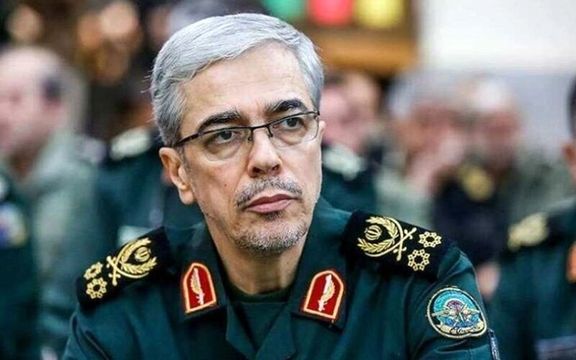
Chief of Staff of Iran's Armed Forces Mohammad Bagheri held separate phone conversations with Russia's Defense Minister Andrey Belousov as well as the army chiefs of staff of Iraq and Syria to discuss the latest developments in Syria, Iranian state media reported Tuesday.
In the phone calls, Bagheri warned that the ongoing offensive by armed rebels in Syria represent the first step in a dangerous scenario for the region, according to Iranian state-run media.
"The parties involved in the phone conversations agreed on unequivocal support for Syria's legitimate government and resolved to take necessary measures to support the Syrian army," the reports said.
The top military officials also called on Syria's neighboring countries to take necessary actions to prevent the support of the rebels, the readout of Bagheri's calls said, apparently referring to Turkey which is known as the main supporter of Syrian rebels who have captured the city of Aleppo over the past week.
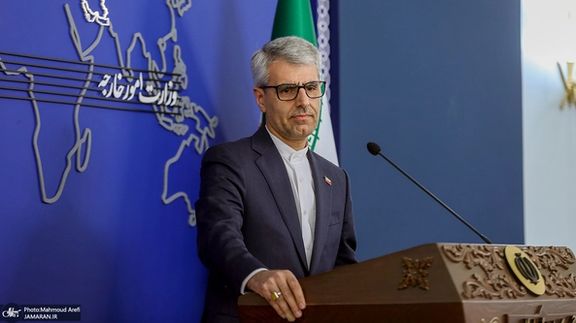
Iran’s president warned on Monday that the state is short of foreign currency and without parliamentary allocation of dollars for imports, gasoline prices would rise amid the country's economic crisis.
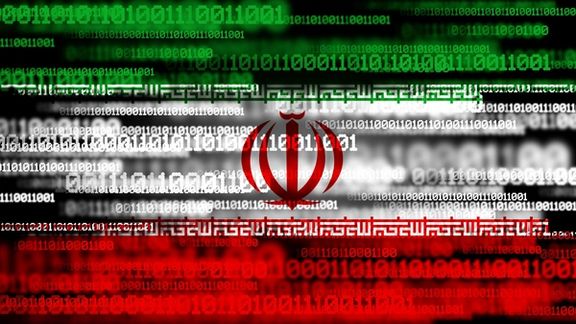
Israel's internal security service Shin Bet assesses that Iran is behind more than 200 phishing attempts against senior Israeli officials, according to a report in the Times of Israel.
The scope of the targets was not limited to political figures, the newspaper reported citing officials from the agency, it allegedly also included Israeli media personalities, journalists and academics.
Shin Bet said the hackers approached their targets on WhatsApp, Telegram and email by trying to get them to download an app that would reportedly give Iran access to their devices.
Once the devices were hacked, the personal information that would have been obtained could have been used to carry out attacks against individuals inside Israel through local agents Iran allegedly recruited, the Shin Bet officials said.
In one case a hacker posed as Israeli Cabinet Secretary Yossi Fuchs, allegedly telling targets he was coordinating a meeting with Prime Minister Benjamin Netanyahu.
Last month Israeli police said they arrested seven Israeli citizens accused of being part of a spy network gathering information on Israel's military bases and energy infrastructure for Iranian intelligence.
In September, an Israeli citizen was arrested on suspicion of being involved in an Iranian plot to assassinate Netanyahu and other top officials.
Shin Bet said the individuals reportedly targeted have all been briefed.

Iranian president and his Russian counterpart discussed the situation in Syria during a phone call on Monday with both leaders expressing their commitment to supporting the Syrian government amidst escalating rebel offensives.
“The focus was on the escalating situation in the Syrian Arab Republic,” the Kremlin said, adding that “unconditional support was expressed for the actions of the legitimate authorities of Syria to restore constitutional order and to restore the political, economic and social stability of the Syrian State.”
Russia and Tehran reaffirmed their support for Syrian President Bashar al-Assad following significant territorial losses to rebel groups, including Hay’at Tahrir al-Sham (HTS) and the Turkey-backed Syrian National Army.
Kremlin spokesman Dmitry Peskov said Monday, “We continue to support Bashar Al-Assad. Contacts are continuing at the appropriate levels. We are analyzing the situation and a position will be formed on what is needed to stabilize the situation.”
President Masoud Pezeshkian also reaffirmed Iran’s readiness to bolster Syria in what he called combating terrorism.
“The Islamic Republic is ready to provide all kinds of support to Syria to eradicate terrorism and thwart the goals of its sponsors,” he said during a during a phone call with Bashar al-Assad on Monday.
Meanwhile, Iranian Foreign Minister Abbas Araghchi met with Turkish Foreign Minister Hakan Fidan in Ankara to discuss Syria.
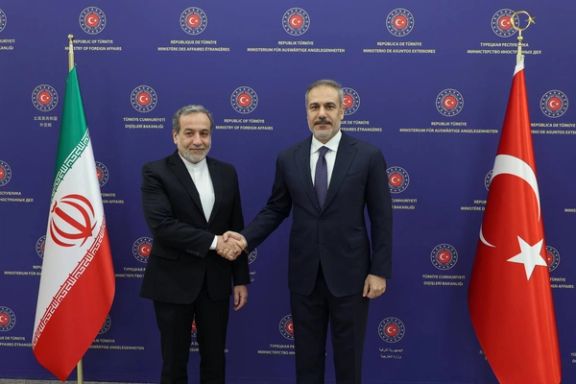
Araghchi acknowledged differences with Turkey over its backing of the Syrian National Army but emphasized a commitment to dialogue.
“We have decided to engage in closer discussions to collaboratively manage the regional situation toward peace and stability,” Araghchi said.
Fidan also expressed readiness to mediate between the Syrian government and opposition factions. However, he maintained that the Syrian conflict stems from unresolved issues over the past 13 years.
Rebel advances and humanitarian concerns
The UK-based Syrian Observatory for Human Rights reported 446 deaths over five days of intense clashes in northern Syria, including 244 rebel fighters, 61 civilians, and numerous Syrian army personnel.
Airstrikes conducted by Syrian and Russian forces targeting Aleppo and Idlib were blamed for the majority of civilian casualties, with several children among the dead.
The official Syrian news agency SANA confirmed that Russian and Syrian airstrikes in Aleppo’s eastern countryside had killed dozens of insurgents.
Assad has vowed to crush the rebels, describing the coalition of HTS and other groups as a threat to Syria’s sovereignty.
Regional and international reactions
Israel has been closely monitoring the developments in Syria. IDF spokesperson Rear Adm. Daniel Hagari said Monday that the military has observed Iran sending reinforcements to Syria.
He warned that Israel would act to prevent arms transfers to Hezbollah via Syrian territory.
“We need to make sure that we are not threatened. We are a sovereign country and we will make sure that Iranian weapons are not smuggled to Hezbollah,” he added.
“Hezbollah was defeated in the campaign and it is necessary to make sure that it does not receive weapons from Iran through Syria.”
Israel’s Foreign Minister Gideon Sa’ar earlier said that his country does not want to take sides in the Syrian conflicts.
"There is no good choice between the Syrian regime and the jihadist rebels," he said Sunday.
On the other hand, Iran’s ministry of foreign affairs blamed the US and Israel for exacerbating the situation in Syria.